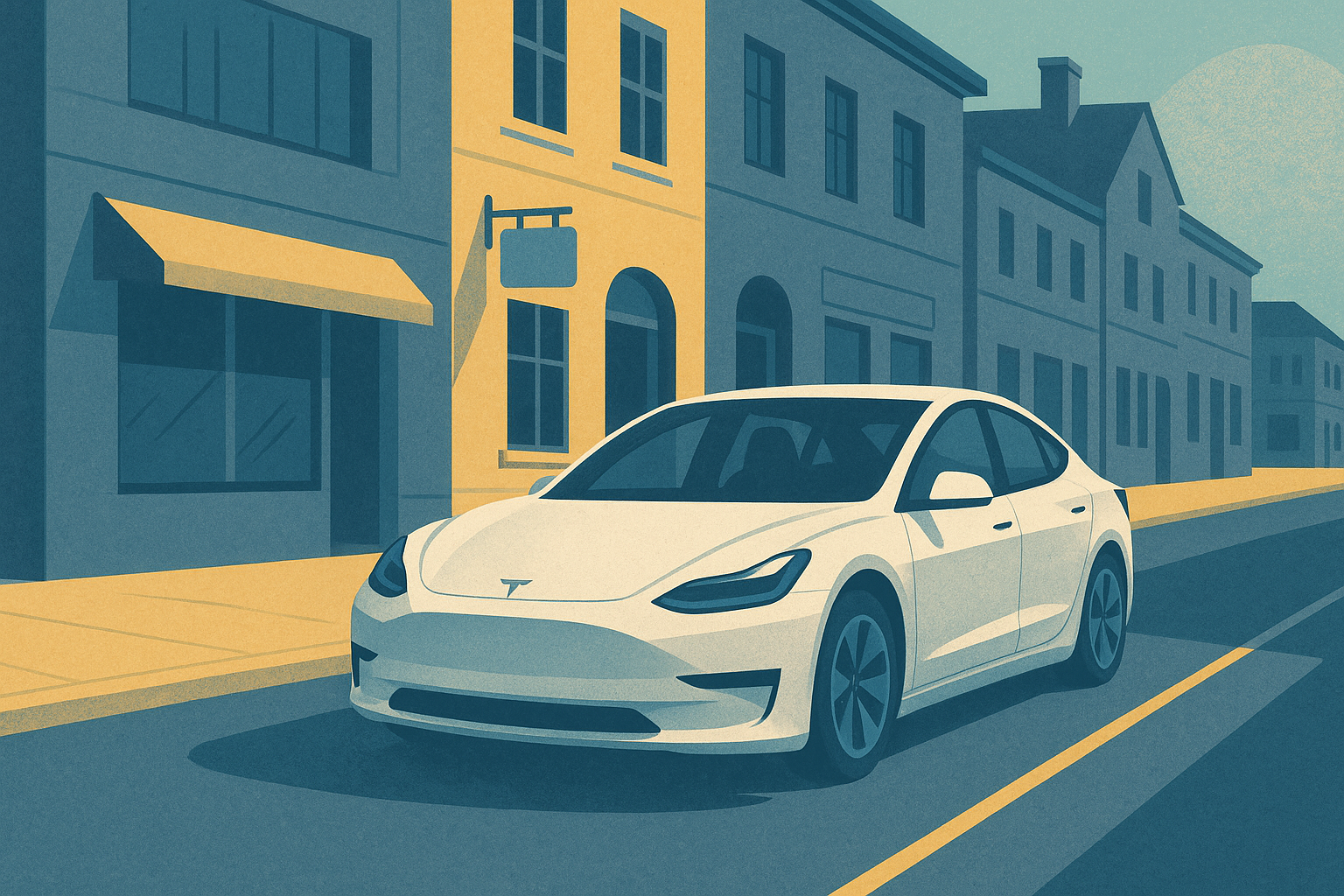Tesla has reported a modest recovery in its UK sales, with 7,700 new vehicles registered in June, marking a 3.7% increase compared to the same month last year, according to the latest figures from the Society of Motor Manufacturers and Traders (SMMT). Despite this improvement, Tesla’s overall UK performance remains slightly down for the year, with 22,700 vehicles registered between January and June 2025, reflecting a 1.3% year-on-year decline.
The increase in June follows a slow start to the year, which Tesla attributed to delays in the production of its updated Model Y at its Berlin gigafactory and consumer hesitation in anticipation of the newer version. Earlier this week, the company announced a 13% drop in global sales during the second quarter, citing several challenges, including CEO Elon Musk’s growing involvement in political matters, heightened competition from Chinese companies such as BYD, and a more crowded electric vehicle marketplace as traditional automakers expand their electric production under regulatory pressure.
Nevertheless, Tesla continues to lead the UK’s zero-emission vehicle (ZEV) market, holding a 10% share of battery electric vehicle sales so far this year, according to data from consultancy New AutoMotive. BMW and Volkswagen follow, each with approximately 8%.
More broadly, the UK’s electric vehicle market experienced significant growth in June, with battery electric vehicle (BEV) registrations rising 39% to 47,300 units. This means EVs accounted for 24.8% of the 193,000 new cars registered during the month, representing a 6.7% year-on-year increase in overall market volume. However, despite these encouraging numbers, the BEV share still falls short of the 28% target set by the government under its zero-emission vehicle mandate. This mandate, introduced this year, requires carmakers to achieve increasing targets for ZEV sales or face financial penalties, with the threshold set to rise to 33% in 2026.
SMMT chief executive Mike Hawes has reiterated calls for stronger government support, warning that the current uptake of electric vehicles is being driven by unsustainable levels of manufacturer discounting and sales channel incentives. “A second consecutive month of growth for the new car market is good news, as is the positive performance of electric vehicles,” Hawes said. “But this growth is still being propped up by industry-backed support. Without government action—through measures like VAT cuts or revising luxury car tax supplements—meeting the ZEV mandate targets remains in jeopardy.” He also urged the government to address the disparity in VAT rates between public and home EV charging, which he described as a barrier to equitable EV adoption.
The latest figures indicate a continued decline in internal combustion engine sales. Petrol cars accounted for 46% of new registrations in June, down from 51% a year earlier, while diesel fell below 6%. Plug-in hybrids and standard hybrids now represent nearly 24% of the market, highlighting the UK’s ongoing shift towards electrified mobility, even as the path to full electrification remains uneven.




